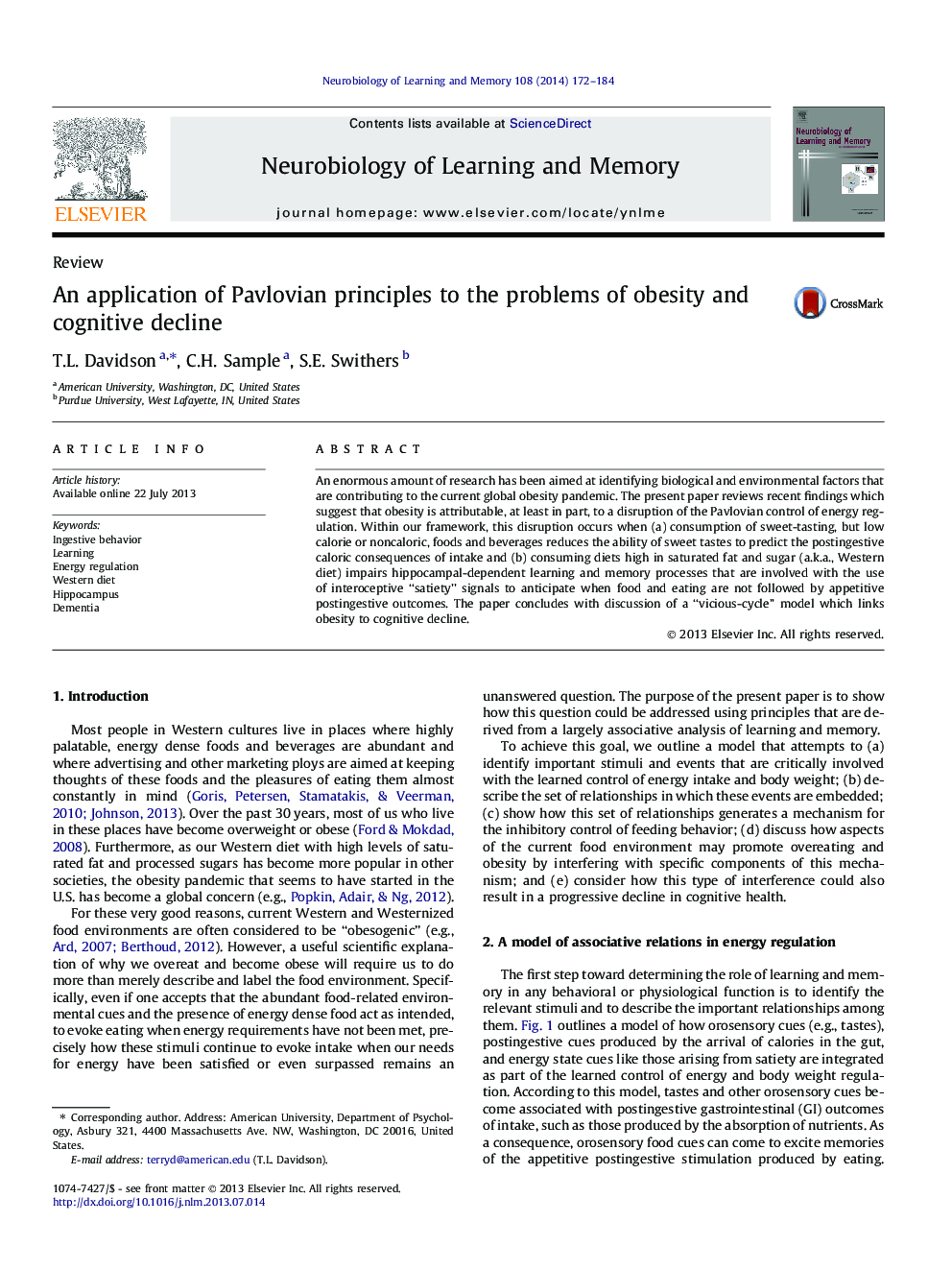| Article ID | Journal | Published Year | Pages | File Type |
|---|---|---|---|---|
| 936572 | Neurobiology of Learning and Memory | 2014 | 13 Pages |
•Pavlovian conditioning contributes to energy intake and body weight regulation.•Dietary factors can reduce the effectiveness of Pavlovian control mechanisms.•Some diets may impair hippocampal-dependent memory function.•Hippocampal dysfunction may lead to a vicious-cycle of obesity and memory decline.
An enormous amount of research has been aimed at identifying biological and environmental factors that are contributing to the current global obesity pandemic. The present paper reviews recent findings which suggest that obesity is attributable, at least in part, to a disruption of the Pavlovian control of energy regulation. Within our framework, this disruption occurs when (a) consumption of sweet-tasting, but low calorie or noncaloric, foods and beverages reduces the ability of sweet tastes to predict the postingestive caloric consequences of intake and (b) consuming diets high in saturated fat and sugar (a.k.a., Western diet) impairs hippocampal-dependent learning and memory processes that are involved with the use of interoceptive “satiety” signals to anticipate when food and eating are not followed by appetitive postingestive outcomes. The paper concludes with discussion of a “vicious-cycle” model which links obesity to cognitive decline.
